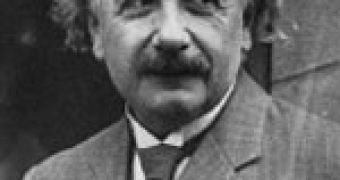Time is relative, we all know that; as we do things that we enjoy, time seems to pass faster, but when we have a bad experience, it seems to take forever for time to pass. Albert Einstein proved in 1905 that this was not happening only in our mind, but time was truly relative and dependent on the speed at which an object is traveling. As you travel slower, time passes more quickly, but when you travel faster, time expands and passes slower.
This was demonstrated using various testing methods, such as measuring the life of a certain particle before it disintegrated. Particles traveling at speeds close to the speed of light seemed to have a longer life than those traveling at slower speeds. The same result can be obtained by using two identical clocks traveling at different speeds.
Time is a strange concept that we cannot fully understand even today. It is the forth dimension of the universe. We can remember things that we did in the past, but not those that will happen in the future. Logic reasoning says we should be able to 'remember' the future since it is clearly inevitable that the future will happen sooner or later.
The Theory of Relativity sparked a lot interest, when it comes to the nature of time, time dilution and the possibility of time travel. Einstein's theory says that traveling at speeds faster than the speed of light (restricted by the Theory of Relativity) in relation to another object, you would travel back in time. It is believed but highly unlikely, that certain types of black holes could provide such time machines, with the help of their powerful gravity. Certain calculations applied to the black hole's singularity, reveal that time at the center of the black hole passes extremely slow or even stops.
One of the most accurate experiments ever conceived into time dilation has proven once again that Einstein was correct. An international team designed a test, in which a particle accelerator would whizz two beams of atoms around a doughnut-shaped course to represent the faster-moving clocks. By timing the beams with a high-precision laser spectroscopy, they found that indeed, the faster moving object slowed time down.
Today, extremely high precision clocks are needed to operate military satellites that provide signal for the Global Positioning System, the geostationary network in Earth's orbit. So atomic clocks are used to send synchronized signals, to triangulate one's positions on Earth. Such clocks are so precise that they only miss one second once about 6 billion years.
The experiment took place at the Max Planck Institute for Nuclear Physics in Heidelberg, Germany. The first time dilution experiment has taken place in 1938, in the US by using the Doppler effect applied to a sound wave.
The time dilution poses a few paradoxes as well. If one of two identical twins is launched into space and travels at relativistic speeds, when he returns home, he would actually be younger than the other. Though it's hard to believe true time-travelers do exist. Astronauts on board the former MIR space station, and the International Space Station, spending long times in space actually travel a few billionths of a second into the future.

 14 DAY TRIAL //
14 DAY TRIAL //